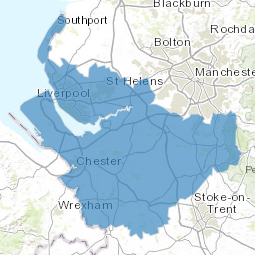
In 2016, Sustainability and Transformation Plans were drafted in the 44 STP areas across the country. The aim of the plans was to outline the major changes in how services will be run over the next decade.
In January 2019, the ten year long-term plan was released. A cornerstone of the plan was the development of integrated care systems (ICS) across England. By April 2021, England had been divided into 42 Integrated Care Systems (ICS). For more details see the section on ICS.
Many of the concerns with STPs - cuts to services and staffing - continue to be concerns with ICS.
The information on this page will not be updated. For up-to-date information on reorganisation of the NHS, see our page on ICS.
What's in the plans?
Most of the plans started by discussing strategy and new solutions, but financial restrictions seriously restricted what they could propose. For instance all the plans said that they want to prevent more illness, but are very limited in what they can do due to cuts to public health budgets.
All the plans share some common ideas, such as moving more care away from hospitals and into the community and getting services to integrate with each other. Many areas proposed ways for GPs, community nurses and social care to work more closely, but these ideas to expand community care cannot be funded and have been estimated to cost £10bn.
These ideas in the STPs now have to be developed into workable ICS by April 2021.
Read more on each STP plan here
How does this link to privatisation?
The Health and Social Care Act passed in 2012 ushered in a market-led NHS and hundreds of contracts are now advertised and awarded each year; this has led to an increasing number of private companies gaining contracts in the NHS.
The STP process brought a second wave of opportunities for private companies to take an even larger chunk of NHS money. The development of Integrated Care Systems (ICS) could continue this process.
All STPs contain references to the integration of community care most often through a multispecialty community provider (MCP). But, from the long-term plan, it is clear that an ICS involves much greater integration than an MCP, with integration at every level of NHS and social care, bringing together NHS organisations, councils, the third sector and the independent sector.
The long-term plan outlines two ways an ICS could operate - either via loose alliance contracts between providers of services or through a single organisation taking responsibility for integration of services. In the latter case, the single organisation will be a prime provider or integrated care provider (ICP). An ICP will be awarded an ICP contract, which has been developed to enable a single contract to cover all types of NHS care, including primary care.
The ICP contracts will be worth millions and 10-15 years in length; a single contract could give a private company a major slice of the NHS budget and the budget for social care.
Contracts notices and prior information notices (PINs) for MCPs have appeared over the last couple of years and give a good example of the size and scope of these contracts and what is on offer to private companies.
Examples of contract notices and PINs for MCPs
In early April 2017, a Manchester commissioning group announced the largest ever tender for NHS services, a contract for a provider of all out-of-hospital care worth £6 billion. The ten year contract will be awarded by Manchester Health and Care Commissioning, a partnership between the city council and a newly formed single clinical commissioning group.
The tender outlines a local care organisation (LCO) that will provide services for around 600,000 people in Manchester and, according to the contract notice, bring together “a range of health, social care and public health services to be delivered in the community.”
In March 2017, Scarborough and Ryedale CCGs published a PIN saying that it hopes to procure a single multispecialty community provider (MCP) contract under a contract worth £1.3 billion over 10 years, by April 2018; a PIN is published before a contract notice often to see how many organisations are interested in such a contract.
Which companies are interested?
Of the large community contracts that have been awarded recently, one company stands out - Virgin Care. In August 2016, Virgin Care won a seven year contract in Bath and North Somerset, worth around £700 million, under which it will coordinate over 200 health and social care services, including adult social services.
Virgin Care has been targeting community health contracts for some years now; the company also has contracts for community health in Guildford and Waverley, Wiltshire and North Kent, as well as a large number of much smaller contracts.








